Understanding Introspection in Recovery
Recovery from addiction and mental health challenges is a complex journey that involves not only ceasing harmful behaviors but also fostering personal growth and self-awareness. At the heart of this transformational process is introspection—a tool that enables individuals to examine their thoughts, emotions, and experiences. This internal dialogue can pave the way for healing and personal growth, significantly influencing recovery outcomes and long-term sobriety.
The Role of Reflection in Recovery
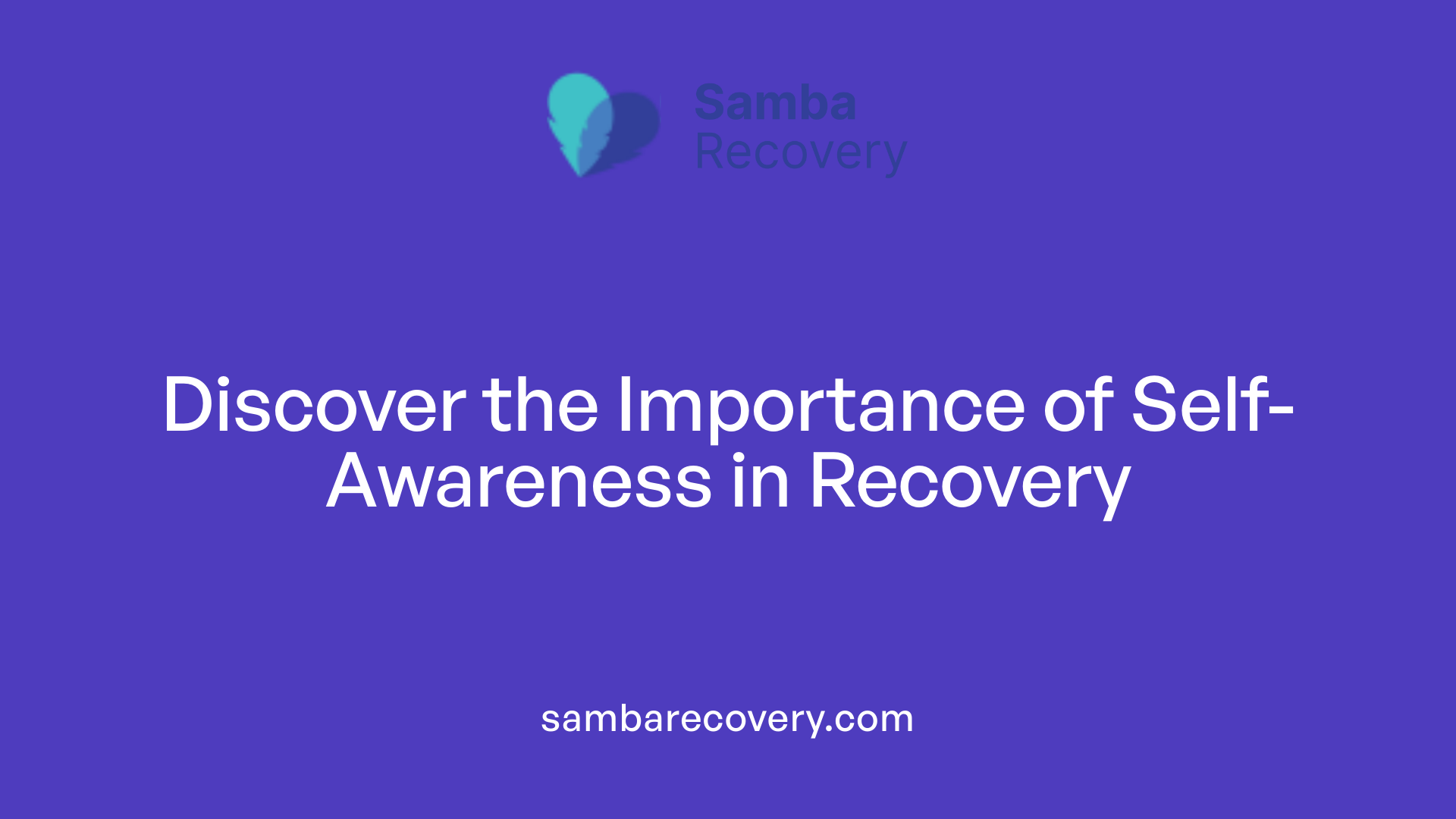
What is the role of reflection in recovery?
Reflection plays a crucial role in recovery by enhancing self-awareness, which is vital for preventing relapse. By taking time to engage in self-reflection, individuals can recognize and address negative thought patterns and emotional triggers, thereby developing a clearer understanding of their unique strengths and values.
Daily self-reflection can lead to greater happiness and a renewed sense of purpose. Incorporating mindfulness practices like yoga and meditation can promote emotional balance, while journaling serves as a valuable outlet for processing thoughts and feelings.
Enhancing Self-awareness
Self-awareness is the cornerstone of recovery. It allows individuals to examine their thoughts, feelings, and actions openly. Techniques such as journaling and meditation enable deeper self-exploration, leading to insights that are crucial for long-term sobriety.
Preventing Relapse
Understanding one’s triggers—whether they’re emotional states, people, or environments—is essential for relapse prevention. Reflection empowers individuals to confront these triggers proactively and implement strategies that mitigate the risk of returning to substance use.
Understanding Negative Thought Patterns
Awareness of negative thought patterns is vital. Engaging in self-reflection helps individuals identify harmful thoughts that may lead to self-destructive behaviors. By restructuring these thoughts, individuals can build resilience and adaptive coping mechanisms.
Enhancing Personal Strengths
Reflection not only uncovers challenges but also highlights personal strengths. Recognizing these strengths empowers individuals to leverage them effectively throughout their recovery. This process ultimately fosters personal growth, resilience, and stability as they work towards a fulfilled, sober life.
| Aspect | Benefits | Techniques |
|---|---|---|
| Self-Awareness | Increased understanding of thoughts and feelings | Journaling, meditation, yoga |
| Preventing Relapse | Identification of triggers and coping strategies | Support groups, therapy sessions |
| Understanding Patterns | Recognition of negative thoughts | Cognitive restructuring, mindfulness |
| Enhancing Strengths | Empowerment and growth | Goal-setting, skill development |
Techniques for Effective Self-Introspection
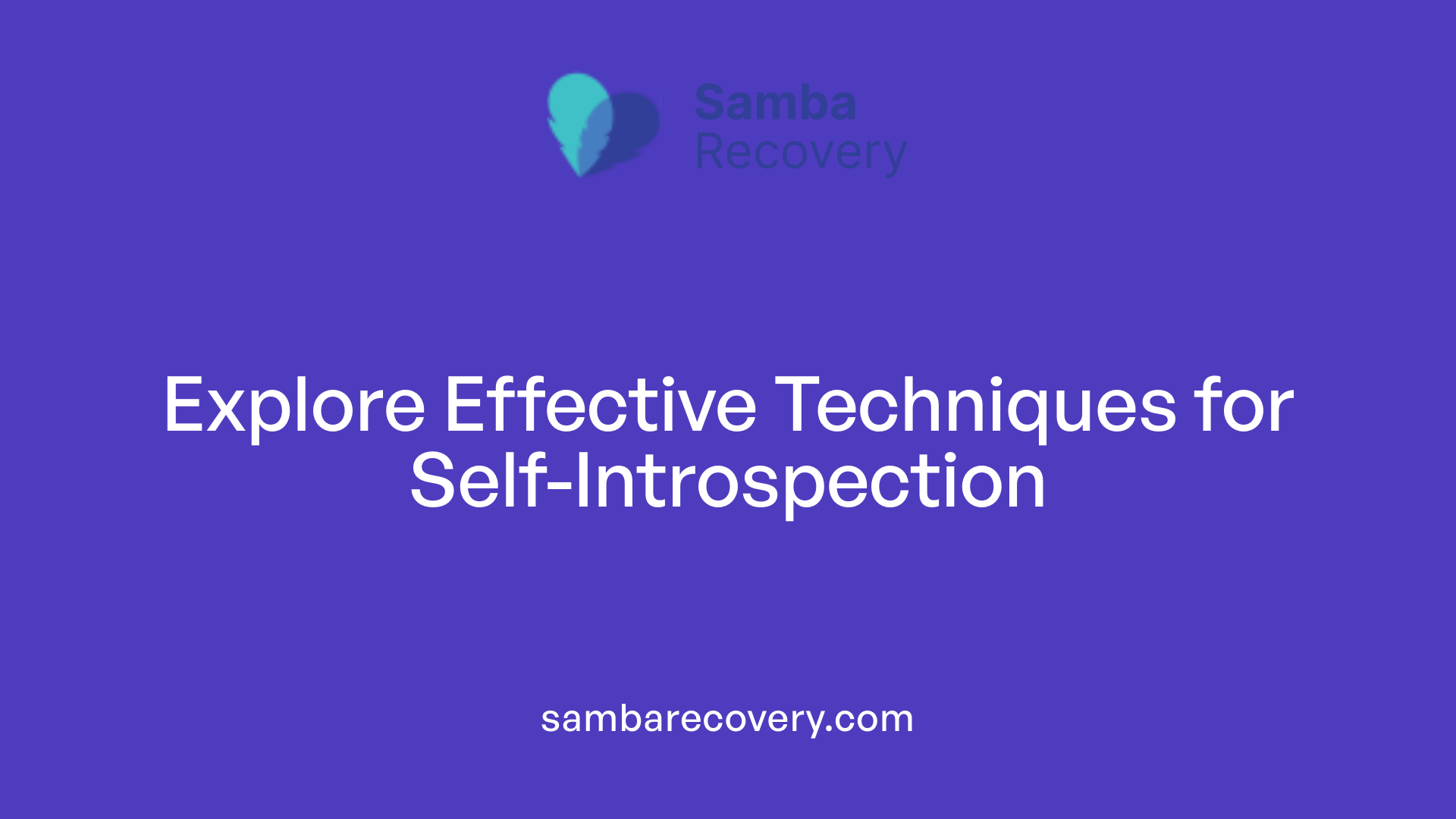
What are techniques for self-introspection during recovery?
Techniques for self-introspection during recovery include engaging in mindfulness activities, journaling thoughts and feelings, practicing meditation, and self-monitoring. These methods enhance self-awareness by allowing individuals to reflect on their inner thoughts and emotions.
| Technique | Description | Benefits |
|---|---|---|
| Mindfulness Activities | Involves techniques like breathing exercises and mindful awareness to anchor one’s attention to the present moment. | Improves emotional regulation and reduces stress, helping individuals manage cravings effectively. |
| Journaling | Writing down feelings and thoughts daily to capture insights into personal experiences and emotions. | Provides clarity and promotes healing by documenting progress and identifying patterns. |
| Meditation | Focusing the mind through various practices to enhance awareness of one’s thoughts and foster inner peace. | Facilitates emotional health, aids in stress relief, and encourages non-judgmental self-exploration. |
| Self-Monitoring | Keeping tabs on thoughts, emotions, and behaviors to recognize triggers and make informed choices. | Empowers individuals to anticipate challenges and reinforces accountability in the recovery journey. |
Introspection has roots in psychological research, as developed by Wilhelm Wundt, emphasizing systematic observation of mental states. While introspection promotes resilience and understanding, it can also lead to biases and rumination that may negatively affect mental health. Overall, effective introspective techniques support personal growth and improve therapeutic outcomes by fostering a clearer understanding of oneself.
Self-Reflection and Resilience Building
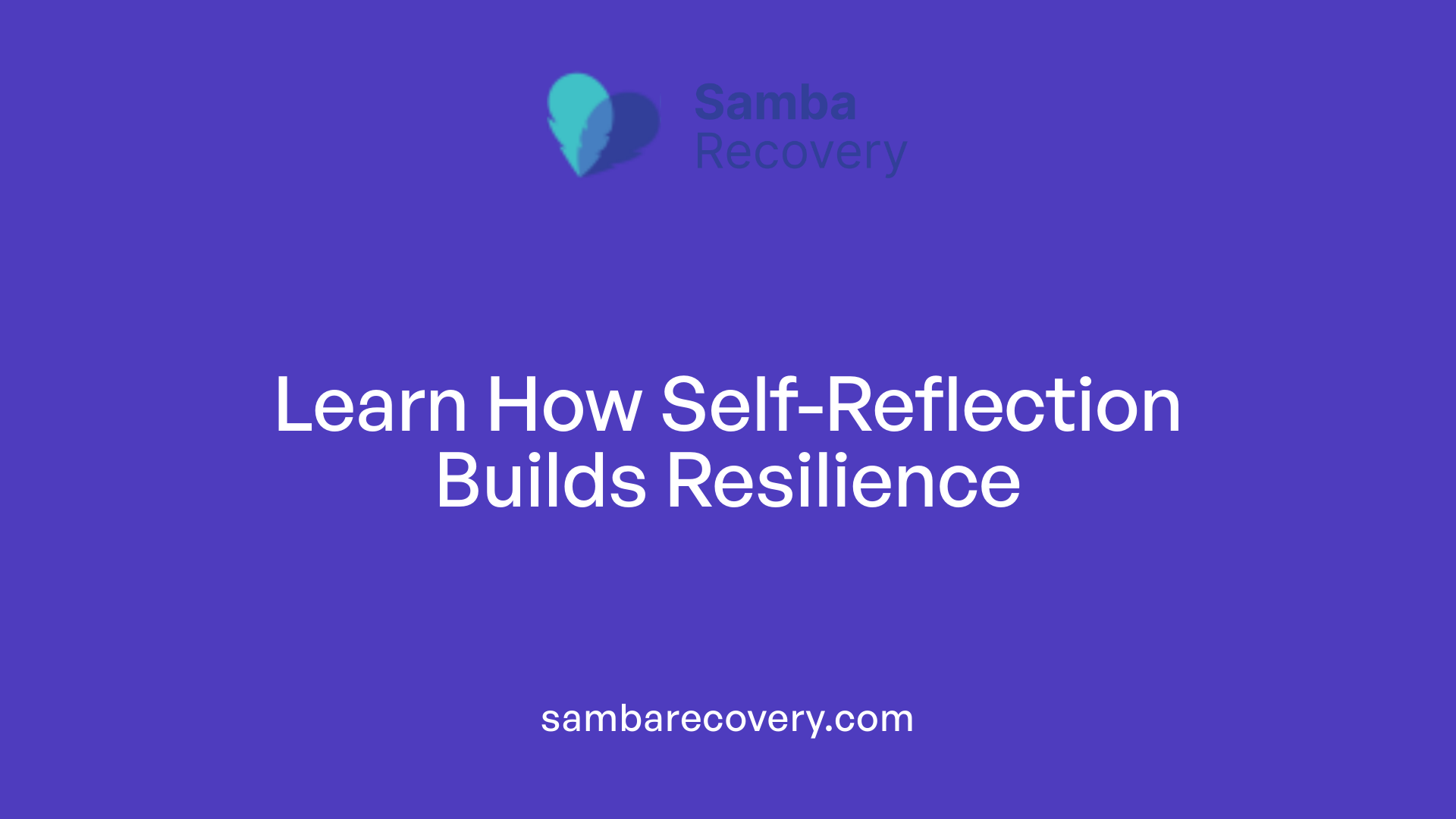
How does self-reflection contribute to understanding past behaviors and fostering resilience?
Self-reflection is pivotal in comprehending one’s past behaviors. It prompts individuals to analyze their thoughts, emotions, and actions, which helps in recognizing harmful patterns and themes in their life. By dissecting past decisions and their outcomes, individuals can gain valuable insights that drive personal growth.
Furthermore, self-reflection nurtures resilience by promoting a growth mindset. This perspective shift allows individuals to perceive setbacks not as failures but as opportunities for learning and improvement. Embracing this mindset fosters emotional intelligence, enhancing empathy and compassion, which are vital for navigating relationships effectively.
Engaging regularly in self-reflection also helps to align actions with personal values and aspirations. Celebrating small achievements builds self-esteem and accountability, providing a foundation for overall confidence. With a deeper understanding of themselves, individuals become better equipped to handle challenges, adapt to their environment, and pursue informed decisions, reinforcing a more resilient character.
| Aspect | Contribution to Recovery | Impact on Resilience |
|---|---|---|
| Understanding Patterns | Identifies recurrent negative behaviors | Develops strategies against relapses |
| Growth Mindset | Reframes perspectives on setbacks as learning | Encourages persistence through challenges |
| Emotional Intelligence | Enhances interpersonal skills and empathy | Supports healthier relationship dynamics |
Introspection in Recovery Programs: A Focus on Narcotics Anonymous
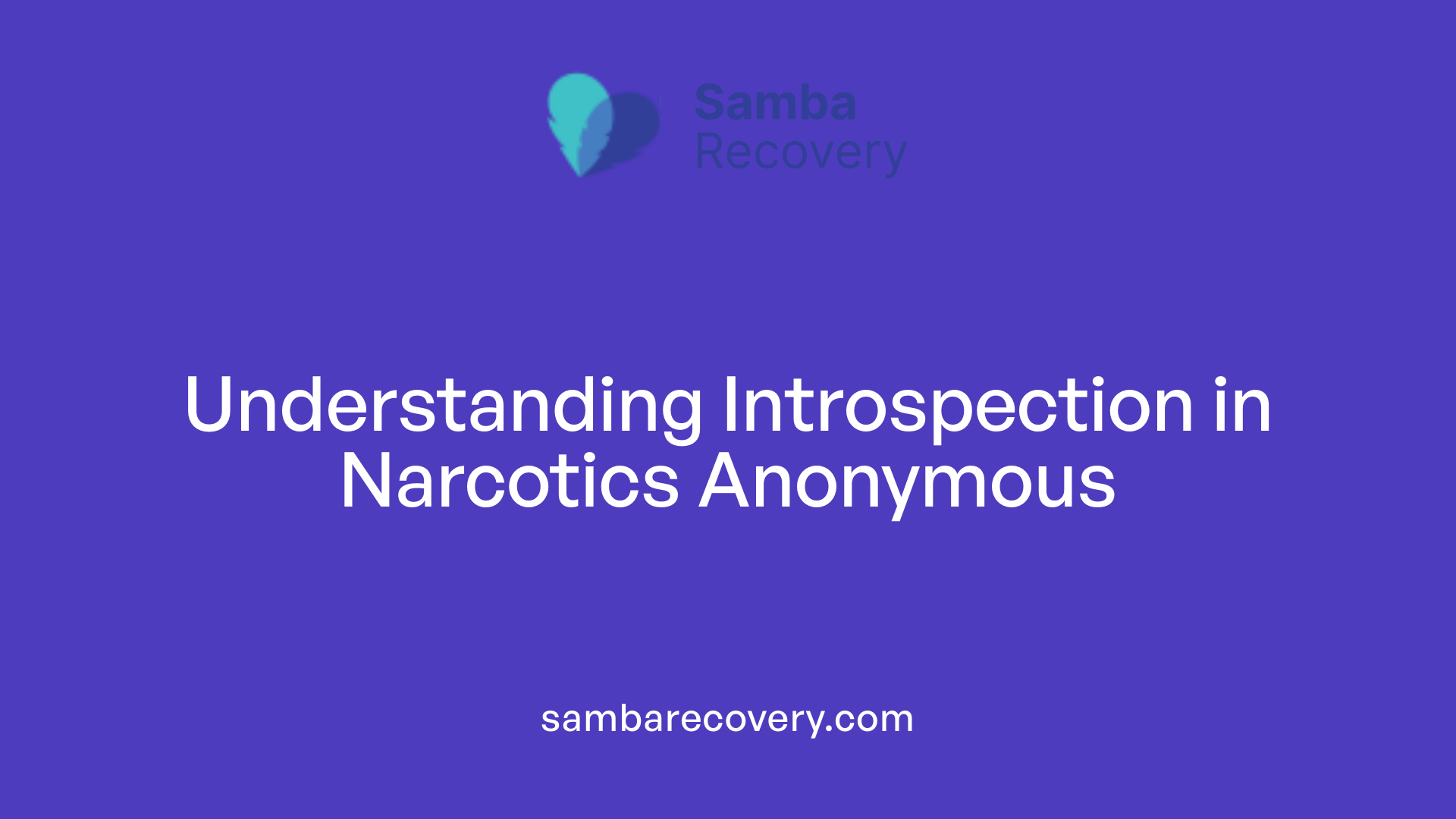
What is the significance of introspection in recovery programs like Narcotics Anonymous?
Introspection plays a crucial role in recovery programs, especially in Narcotics Anonymous (NA). It promotes self-awareness, helping individuals identify personal triggers and patterns related to their addiction. By encouraging continuous self-reflection, NA emphasizes the importance of understanding one’s thoughts, feelings, and actions, which is essential for personal growth.
Step 10 of NA: Continuous Personal Inventory
Step 10 of NA centers on taking a personal inventory and addressing any wrongdoings promptly. This step promotes accountability and encourages individuals to regularly assess their behaviors and emotional triggers, vital for anticipating challenges that may arise during recovery. Engaging in a personal inventory not only helps in recognizing flaws but also fosters healthier relationships and self-acceptance.
Building Coping Mechanisms through Self-reflection
The introspection process encourages the development of effective coping mechanisms. It empowers individuals to identify and manage potential relapse triggers, reinforcing resilience and emotional capacity. Coping strategies may include mindfulness practices, journaling, and the exploration of healthy alternatives, all essential for navigating the path towards long-term sobriety and emotional healing.
Identifying Triggers and Developing Coping Strategies
Understanding Triggers
Identifying personal triggers is an essential step for individuals in recovery. Triggers can be internal, such as emotions like anxiety or sadness, or external, including specific people, places, or situations that provoke cravings. By recognizing these triggers, individuals can better prepare themselves to respond effectively without resorting to substance use.
Constructive Perspectives
Engaging in self-reflection can aid in shifting one’s perspective towards a more constructive approach. By focusing on ‘what’ questions rather than ‘why’ questions, individuals can reduce feelings of guilt and anxiety. This change in perspective fosters resilience and empowers individuals to address underlying issues without becoming overwhelmed by negativity.
Cognitive Restructuring
Cognitive restructuring is a critical technique that can be employed to challenge and replace negative thought patterns. Individuals in recovery often face detrimental habits of thinking that can reinforce feelings of inadequacy or hopelessness. By practicing cognitive restructuring, they learn to confront these thoughts, enabling them to develop healthier coping strategies and facilitate emotional growth.
| Topic | Description | Importance |
|---|---|---|
| Understanding Triggers | Awareness of emotional and situational triggers | Enhances preparedness to prevent relapse |
| Constructive Perspectives | Shifts focus from self-blame to growth | Reduces anxiety and promotes resilience |
| Cognitive Restructuring | Challenge and replace negative thoughts | Supports emotional regulation and recovery goals |
Mindfulness and Journaling as Introspective Practices
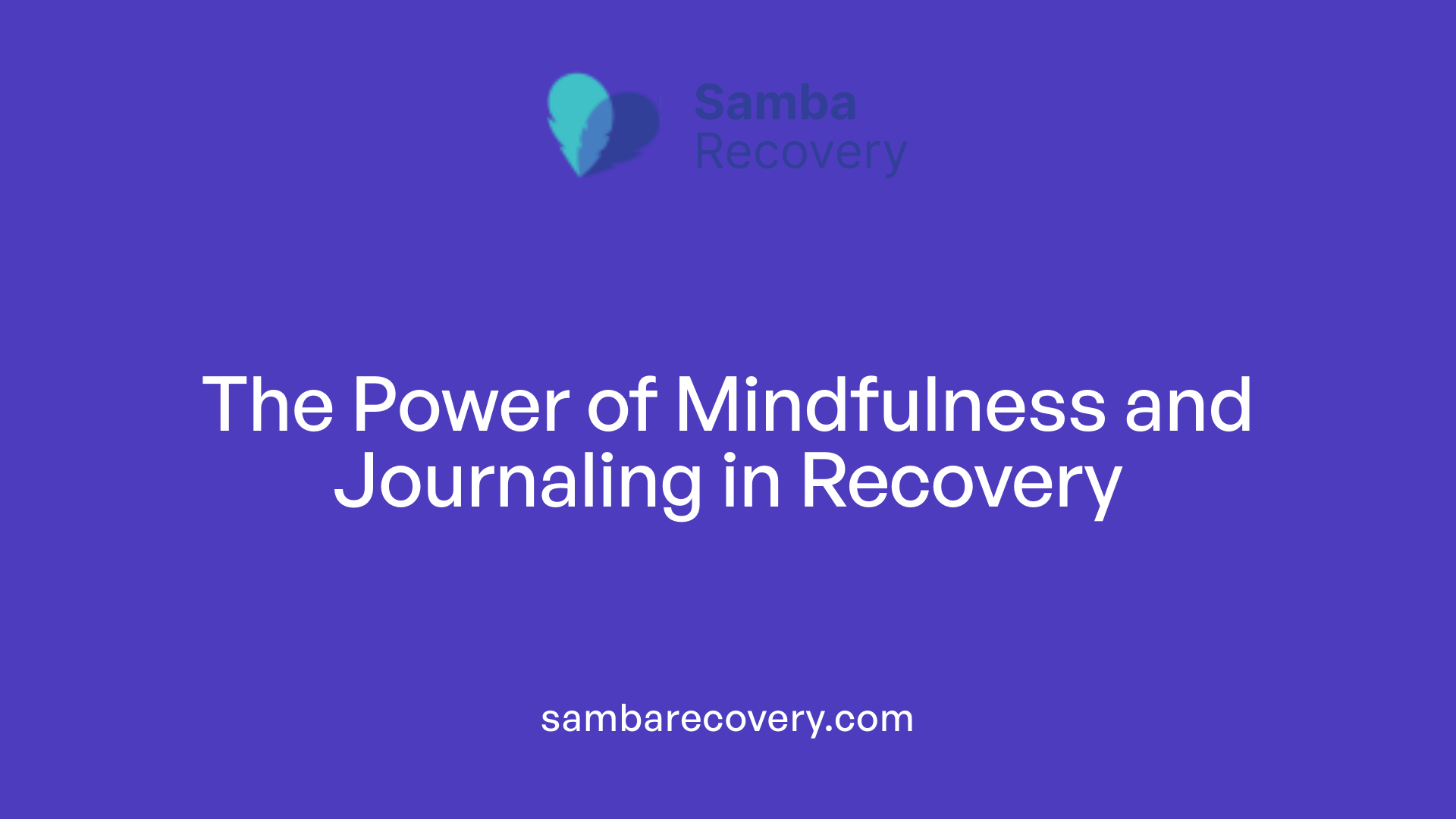
Mindfulness Exercises
Mindfulness exercises, including meditation and mindful breathing, foster introspection by helping individuals focus on their present thoughts and emotions. Engaging in these practices promotes emotional regulation and stress management. By quietly turning inward, individuals can observe their thoughts in non-judgmental ways, providing a clearer understanding of their triggers and emotional responses related to addiction. This self-awareness is crucial for navigating the recovery process.
Benefits of Journaling
Journaling serves as a powerful tool for emotional expression and self-reflection. It aids individuals in documenting their thoughts and feelings, providing insight into their recovery journey. Writing down emotions can help process complex experiences and identify patterns that contribute to substance use. Moreover, it can enhance accountability, as individuals track their progress and setbacks in recovery, motivating them to remain committed to their goals.
Emotional Healing
Both mindfulness and journaling facilitate deep emotional healing. Mindfulness encourages living in the moment, reducing anxiety associated with past mistakes or future uncertainties. Journaling allows people to confront their emotional baggage and foster vulnerability. Through this process, individuals can identify underlying emotional wounds, enabling them to work towards closing those gaps in their healing journey.
As these practices entwine, they not only promote better self-awareness but also establish a foundation for a fulfilling, sober life.
The Interplay Between Self-Awareness and Sobriety
Maintaining Sobriety through Self-Reflection
Self-reflection is an essential aspect of maintaining sobriety. It allows individuals to identify personal triggers—situations, feelings, or places that may incite cravings. Understanding these triggers is vital for developing effective coping strategies, ultimately fostering a healthier lifestyle. Engaging in regular self-reflection can prevent relapse and promote a more resilient mindset.
The Role of Self-Awareness in Recovery
To navigate recovery successfully, individuals must cultivate self-awareness. This involves examining thoughts, beliefs, and emotional responses to uncover the root causes of their substance use. Techniques like mindfulness, journaling, and meditation can facilitate this process, creating space for valuable insights. Enhanced self-awareness empowers individuals to identify harmful patterns, leading to positive behavioral changes.
Personal Growth through Introspection
Personal growth is a significant outcome of introspective practices. By reflecting on past experiences and feelings, individuals can set realistic goals and regain a sense of purpose in their lives post-addiction. This growth is empowered through supportive communities that encourage one another, fostering resilience and connection. Introspection ultimately drives individuals toward a fulfilling and sober life.
Recognizing Past Behaviors and Setting Goals
Examining Past Behaviors
In the journey of recovery, introspection plays a significant role in recognizing past behaviors associated with addiction. By reflecting on previous actions, individuals gain insights into their triggers and the patterns that led to substance use. Acknowledging these behaviors is a critical step towards healing, as it fosters self-awareness and accountability, allowing individuals to confront the emotional wounds that underlie their addiction.
Building Resilience
Facing uncomfortable truths about oneself can be daunting, yet it is essential for developing resilience. As individuals come to terms with their past, they can cultivate a stronger mindset that empowers them to navigate the challenges of recovery. Recognizing the strengths gained from overcoming difficult experiences contributes to a lasting sense of purpose and motivation.
Setting Realistic Goals
Goal setting is integral to the recovery process. By establishing achievable targets, individuals can create a roadmap for their personal development. This clarity helps maintain focus on recovery and overall well-being, steering them away from environments and behaviors that threaten sobriety.
| Topic | Key Elements | Outcomes |
|---|---|---|
| Past behaviors | Reflection, Accountability | Greater self-awareness |
| Resilience | Emotional strength, Coping strategies | Improved ability to handle future challenges |
| Goal setting | Achievable targets, Progress tracking | Sustained motivation and personal growth |
| Purpose | Rediscovery of interests, Meaningful connections | Enhanced quality of life post-recovery |
By actively engaging in these practices, individuals can foster personal growth and find renewed purpose in their lives after addiction.
Embracing Introspection for Recovery Success
Introspection is not just a therapeutic tool but a vital component of the recovery process. By fostering self-awareness, emotional regulation, and personal growth, introspective practices provide individuals with the insights needed to overcome addiction and mental health challenges. Whether used in structured recovery programs like Narcotics Anonymous or personal daily reflections, the power of introspection lies in its ability to transform lives by unveiling truths, inspiring resilience, and setting a foundation for a fulfilling and sober future. Embracing introspection wholeheartedly can ultimately steer individuals toward a path of continual healing and self-discovery.
References
- Why the Introspection Process Is Important to Recovery
- Self-Reflection for Growth in Addiction Sobriety
- What Is the Importance of Self-Reflection in Recovery?
- Discovering the Power of Self-Reflection for Addiction Recovery
- The Role of Reflection in Recovery for Midlife Adults
- Developing Introspection – The Arbor Behavioral Healthcare
- Asking Yourself These Questions Can Strengthen Your Addiction …
- Introspection in Recovery – The Wave Columbia
- Finding Purpose in Recovery: Rediscovering Passion and Meaning …






